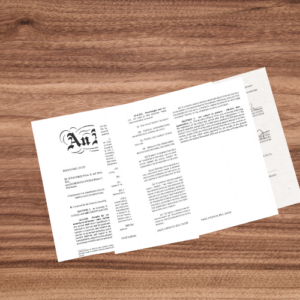02 Oct Colorado Bill Has Impact On Carriers

During the Colorado General Assembly regular session Senate Bill 24-220 concerning the administration of permits to operate extralegal vehicle load combinations was presented. Top sponsors of the bill included Senator Nick Hinrichsen. Senator Rod Pelton, Representative Meghan Lukens and Representative Ty Winter. After progressing through both the Senate and the House, the bill was signed by Governor Jared Polis on 5/31/2024. CDOT has confirmed starting 11/01/2024 they will begin enforcing the changes.
The bill requires 3rd party documentation establishing the load’s gross weight when applying for a permit with a gross weight between 200,000lbs and 500,000lbs. Acceptable documentation includes:
- Manufacture’s certification of the load’s weight.
- Certified weight ticket from a certified public scale.
- Clearance certification from law enforcement.
- Third-party bill of lading.
While a weight ticket, certification from law enforcement and a 3rd party bill of lading are uniform across most states, a manufacture’s certification of the load’s weight is rather broad in definition. Permit America reached out to the CDOT permit office for further clarification on what exactly is acceptable as the manufacture’s certification of the load’s weight. Here is what we were told:
- There is not a specific form or format that must be followed.
- The document must contain the manufacturer’s name and/or logo
- If the document is in the form of a letter, it must be signed by a representative of the manufacturer including position/title.
- Weight of the piece as it will be loaded on the trailer as well as specific load name/piece
- If parts are removed from a piece of equipment the weight provided cannot be the fully assembled weight.
- Hauling a CAT 777 chassis, the manufacturers certification of weight cannot be for 363,000lbs.
- If parts are removed from a piece of equipment all removed pieces must be listed or the piece being hauled must be very specific.
- CAT 777 with a certificate of weight of 117,750 is not acceptable; CAT 777 chassis would be acceptable.
- If parts are removed from a piece of equipment the weight provided cannot be the fully assembled weight.
It is important to note that not only is the documentation required to be provided to CDOT prior to issuance of the permit, the driver must have the document in possession and produce upon request by any law enforcement personnel. In addition to any other violation penalty, a penalty of $1 per pound more than the gross weight authorized by the permit will be imposed on carriers without the required documentation. The Statewide Bridge and Tunnel Enterprise Special Revenue Fund will be credited with all penalty revenue. While the penalty fees have been earmarked for this fund, the anticipated revenue will be minimal if any. The expectation is that all carriers will comply with the additional documentation requirement.
While the additional documentation requirements seem to have the most impact on carriers, it is important to note that the bill also provides CDOT more flexibility in the issuance of emergency permits. The definition of emergency permits in this bill is a temporary situation where:
- Public safety or health is threatened.
- Critical infrastructure or homes are not able to maintain heat, power, or light.
- Inability to secure adequate food, water or fuel.
- Agriculture operations/productions is threatened with hazard or harm, including hazard or harm to animals.
The bill allows CDOT to issue a single-use permit for an emergency or to provide aid to individuals impacted by an emergency, more importantly the bill gives CDOT the authority to issue a local permit. The carrier must make a reasonable attempt to contact and obtain approval from local authorities, if the carrier is unable to contact the local agency, they will contact CDOT. After a reasonable amount of time has passed and CDOT is also unable to contact the local agency, CDOT may issue the local permit. It is important to note that local permit fees will still be accessed. The local permit fees will be paid to CDOT at the time of issuance and CDOT will in turn remit the amount to the local agency. If law enforcement escorts are needed CDOT must obtain approval from CSP prior to issuing the permit.
Permit America is dedicated to not only provide excellent service in procuring permits but also keep carriers informed on the constantly changing industry. We would also like to note that all information provided has been thoroughly researched and additional documentation provided for those who are interested in diving deeper into the topic.
Make sure to like/follow our social media pages ![]()
![]() for up to date information on industry changes, closings, restrictions, and all things permitting.
for up to date information on industry changes, closings, restrictions, and all things permitting.
Interested in becoming a customer of Permit America? Give us a call 866-573-7648 or fill out our New Customer Application.



No Comments